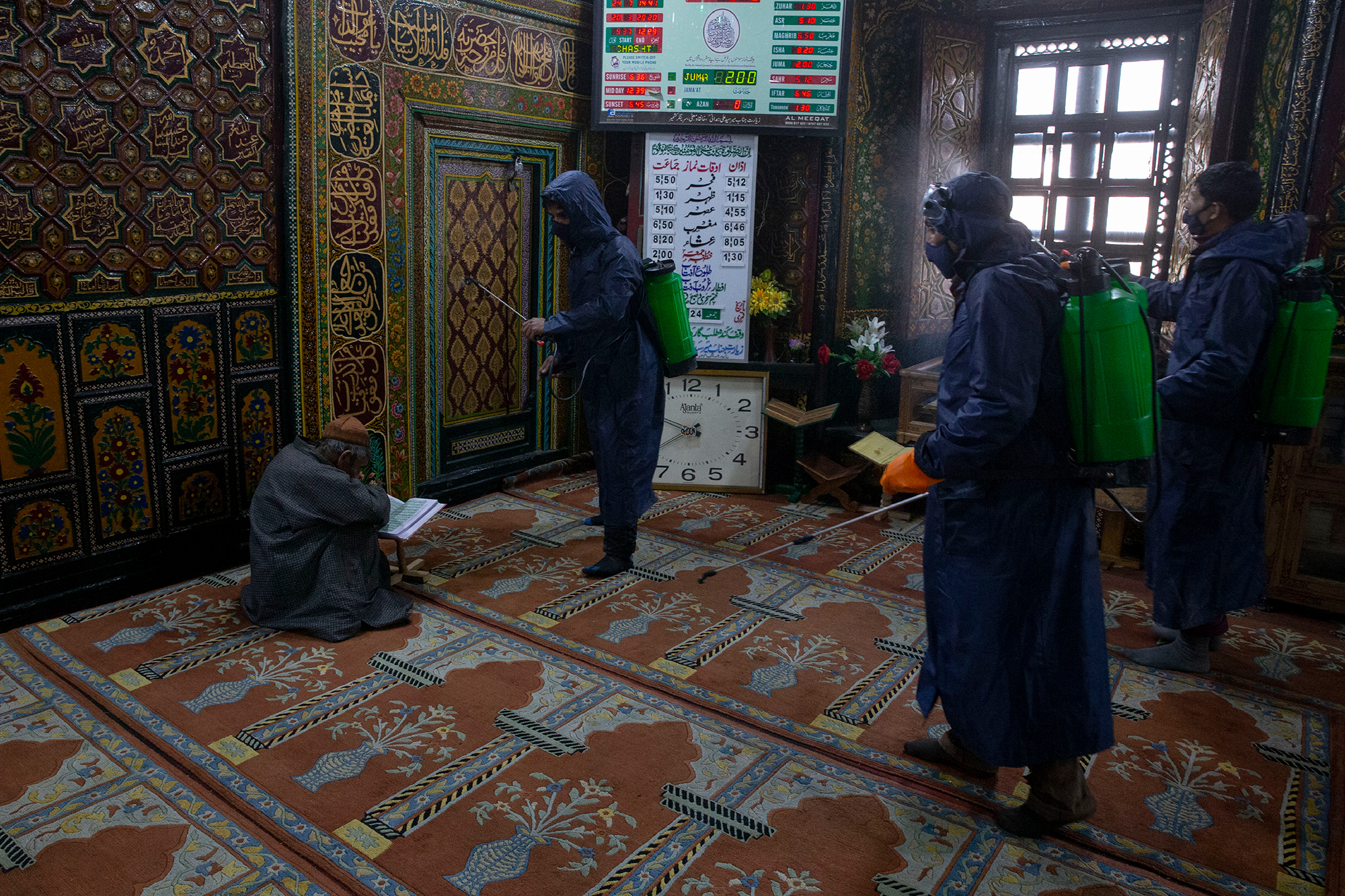BEIJING/SHANGHAI (Reuters) - China’s imported coronavirus cases have risen to a record 228, data showed on Friday, as infected travellers spread to ever more provinces, adding pressure on authorities to toughen entry rules and health protocols.
For a second day in a row, China found no domestically transmitted cases of the virus that emerged in its central province of Hubei late last year, according to new daily figures registered on Thursday.
Fears of a second wave of infections are growing just as China brings its epidemic under control, with the spread of the virus in Europe and North America spurring a rush homewards by Chinese expatriates, many of them students.
“The number of imported cases in China has further increased, and so the pressure to be on guard has also increased,” Wang Bin, an official of the National Health Commission, told a news conference in Beijing on Friday.
Mainland China had 39 new imported infections on Thursday, the commission said. Fourteen of these were in the southern province of Guangdong, eight in the commercial hub of Shanghai and six in the capital, Beijing, it said in a statement.
The main entrypoints for infected travellers have been key transport hubs such as Beijing, Shanghai and Guangdong, including the city of Shenzhen, near Hong Kong.
A smattering of imported cases were also reported in the city of Tianjin and the provinces of Liaoning, Heilongjiang, Shandong and Gansu in the north, as well as in the provinces of Zhejiang, Fujian, Sichuan, and the region of Guangxi further south, taking China’s total imported infections to 228.
The commission did not say where the cases were believed to have originated, but provincial authorities said some of the travellers had been in Britain, Spain and the United States.
“Everyone is being very vigilant about those coming back from abroad. We must absolutely not let our guard down,” Cao, a Beijing resident who gave only his surname, told Reuters.
“We cannot relax this vigilance so much that we see a rebound.”
In Gansu, five officials were punished for picking up travellers returning from overseas without permission, including two who have tested positive, the official Xinhua news agency said.
As concern grows over infected arrivals from overseas, the foreign ministers of China, Japan and South Korea held a video conference on Friday to discuss cooperation to rein in the pandemic.
NO SYMPTOMS
The new imported case in Tianjin, a city of 11 million, was a 23-year-old woman studying in London who came home via Zurich, Tokyo and Beijing, Xinhua said.
The northeastern city of Shenyang said its first imported case was a traveller arriving from London via Seoul, who displayed no fever or respiratory tract symptoms at the airport on March 16.
Many outbreaks overseas were caused by travellers from China who were pre-symptomatic and so had not been screened or isolated, the Yale School of Public Health said in a study.
China has long recommended self-isolation by returning travellers, but authorities in some regions now enforce 14 days in quarantine in a medical facility for people returning from any of 24 badly-hit nations, to limit the risk of spread by those not yet showing symptoms.
For a second day, there were no new cases in the outbreak epicentre of Wuhan, the capital of Hubei, the National Health Commission said.
Mainland China’s tally of infections stands at 80,967, with the death toll at 3,248 by Thursday, an increase of three from the previous day.
Globally, 245,000 people have been infected and more than 10,000 have died.
Reporting by Ryan Woo, Gao Liangping, Brenda Goh, David Stanway, Thomas Suen, Zhang Yan, and Gabriel Crossley; Editing by Stephen Coates and Clarence Fernandez
https://news.google.com/__i/rss/rd/articles/CBMingFodHRwczovL3d3dy5yZXV0ZXJzLmNvbS9hcnRpY2xlL3VzLWhlYWx0aC1jb3JvbmF2aXJ1cy1jaGluYS9jaGluYXMtbmV3LWltcG9ydGVkLWNvcm9uYXZpcnVzLWNhc2VzLWF0LXJlY29yZC1uby1kb21lc3RpYy10cmFuc2ZlcnMtZm9yLXNlY29uZC1kYXktaWRVU0tCTjIxNzA2NdIBNGh0dHBzOi8vbW9iaWxlLnJldXRlcnMuY29tL2FydGljbGUvYW1wL2lkVVNLQk4yMTcwNjU?oc=5
2020-03-20 14:03:37Z
CAIiEGvtotlJucI1ybEZfKsbgWgqFggEKg0IACoGCAowt6AMMLAmMLT5lwM

